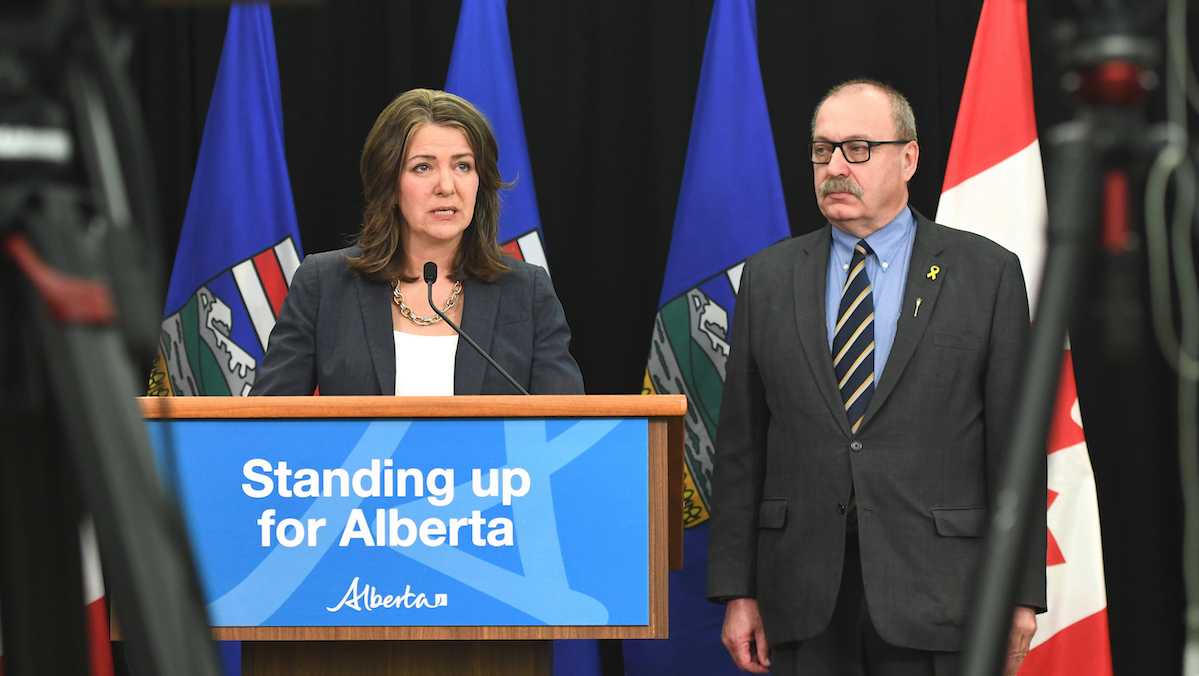Alberta’s United Conservative Party (UCP) MLAs are likely to soon get a hard lesson in what the late Colin Powell supposedly called the Pottery Barn Rule.
To wit: If you break it, you own it.
In Canadian politics, there is a relevant corollary to the Pottery Barn Rule, which Powell, a career soldier who rose to be a general of the Army and chairman of the Joint Chiefs of Staff, is said to have used when he was US Secretary of State in 2003 to try to explain to President George W. Bush what would happen if the United States invaded Iraq.
The corollary is, there’s nothing an elected Canadian politician loves to say when fielding a complaint from a constituent as much as, “Sorry, not my jurisdiction!”
So let’s just put aside the joint facts that Powell insisted he never said anything about the Pottery Barn Rule, and Pottery Barn said it has no such rule in its stores, and get to the problem UCP MLAs are likely to experience if the Legislature goes ahead and passes Bill 20, the Municipal Affairs Statutes Amendment Act (MASAA).
Now the MASAA is a bill with a dull name, presumably chosen to disguise the fact it is in fact radical legislation that undermines democracy and in is line with the increasingly authoritarian mood of the leadership of the UCP, starting with Premier Danielle Smith.
As an aside, this goes against the usual UCP practice of giving legislation dramatic and tendentious names to suggest that bills will do the opposite of what they are intended to do. A recent example of that would be 2020’s Restoring Balance in Alberta’s Workplaces Act, which was intended to restore an imbalance in favour of employers Alberta labour relations. But, I digress.
MASAA is intended to fix a system that works reasonably well, but the UCP hates because voters in Edmonton and Calgary keep exercising their democratic franchise in favour of progressive municipal politicians. In an attempt to rig the field in favour of Take-Back-Alberta-style conservatives, it will introduce municipal political parties, reintroduce corporate money to municipal politics, and allow cabinet to nullify bylaws and fire city councillors in secret.
The intended effect, obviously, is to make it easier to elect conservatives to city hall, and, failing that, to make it easier to intimidate city hall politicians to do what the provincial government wants, and, failing that, to make it easy to fire municipal leaders the UCP doesn’t like without proper explanation or due process.
As a result, almost everyone despises the act. It’s been pointed out that the government already has the power to remove councillors who actually need to be fired. It’s been openly called authoritarian. It was conceived without consultation, as the Edmonton Journal’s municipal politics columnist observed. And even rural councillors, who normally function as a farm team for conservative governments on the prairies, don’t like it.
The backlash was so fierce the government rolled out Municipal Affairs Minister Ric McIver a second time to promise to introduce some amendments – presumably to settle down the rural critics who are usually more friendly to the government.
As St. Albert Mayor Cathy Heron told the CBC, nobody really believes that McIver’s promise of meaningful consultations will turn out to be very meaningful, but “I’ll cross my fingers that they’re very genuine about that statement.”
Which is why it matters that the UCP’s own backbenchers realize what this means for them.
One wonders if it’s occurred to anyone in the UCP caucus that if their leadership breaks municipal democracy in Alberta, they’re going to own it. Not their bosses, either, so much as the backbenchers who are paid well, have little responsibility, and enjoy a good life.
It’s axiomatic that when municipalities refuse to consider bylaws their voters demand, or pass ones the same voters don’t want, they’re now going to tell the angry constituents who call that there’s nothing they could do, the province gives them they’re marching orders, and they’ll all be fired if they push it.
Human nature being what it is, they may even say that now and again when it isn’t really true.
In other words, Bill 20 hands them a kind of Get Out of Jail Free Card, the ability claim their jurisdiction isn’t their jurisdiction any more while remaining in their jobs.
True or not, what town councillor wouldn’t be tempted to say something like this: “I completely agree with what you’re saying, but the government’s made it clear they call the shots now. Why don’t you call your MLA? Here’s their number …”
If you break it, you own it.
It’s your jurisdiction now.
Brace yourselves, backbenchers!




